Recently, a bizarre question took hold of social media: Could 100 men take on a gorilla in a fight? What…
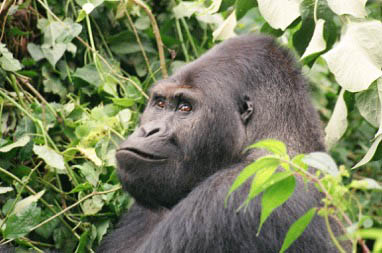
Gorillas and humans share around 98% of the same DNA. This genetic closeness builds respect and empathy. But it also has a major downside.
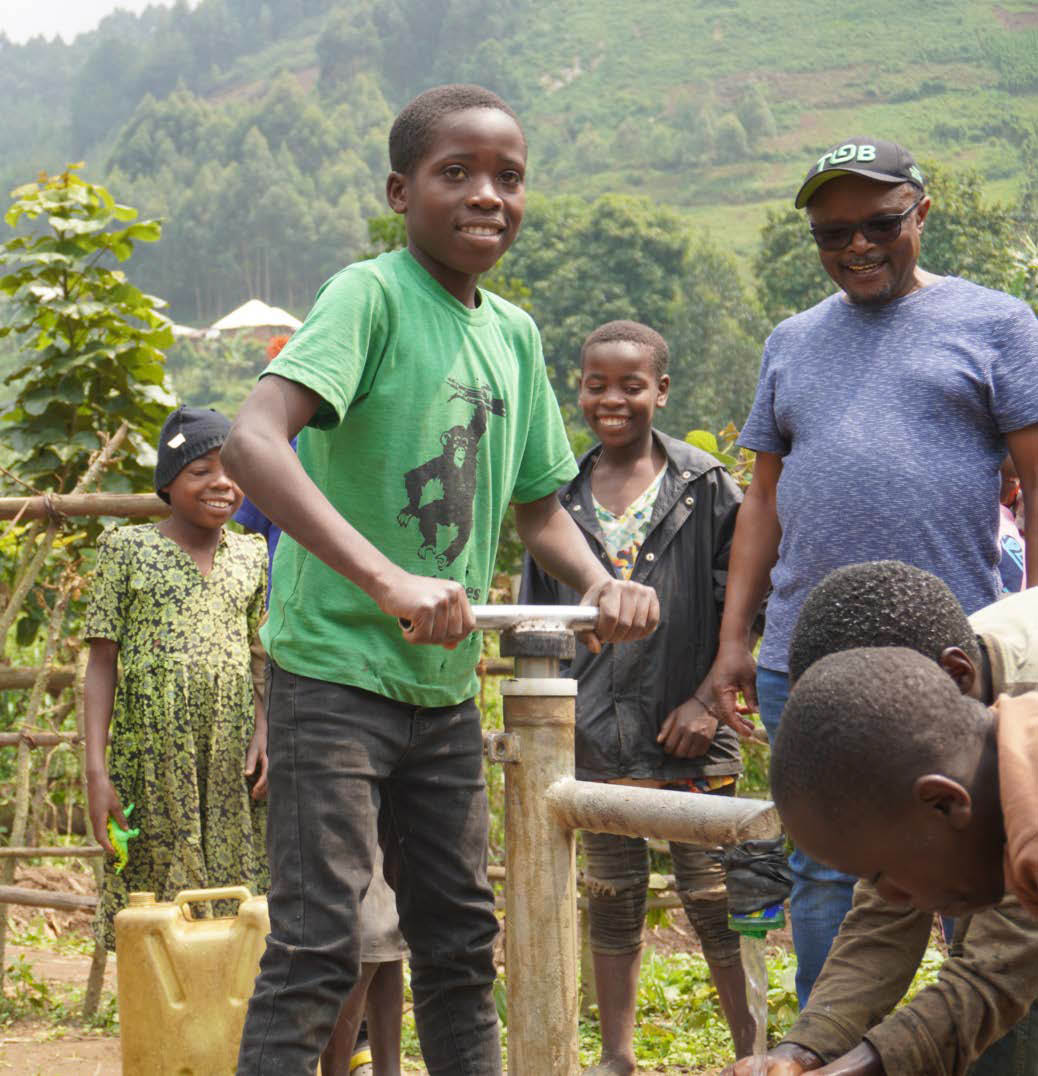
Gorillas and other great apes can catch diseases from humans. And viruses that are easily treatable for people can be far more serious, even deadly, for gorillas.
The threat posed by human gorilla transmission (known as reverse zoonoses) is only getting bigger as the two come into more frequent contact. The boundary between communities and the gorilla habitat is becoming increasingly blurred, not least as tourism brings people from all parts of the world, as well as rangers and trackers, to within just a few metres of the vulnerable great apes.
At the same time, the people living alongside the protected National Parks and reserves continue to encroach, bringing with them diseases that could potentially decimate critically endangered gorilla groups.
While research into reverse zoonoses is still in its relative infancy, the Gorilla Organization’s work to keep gorillas safe from human diseases is not. For more than 20 years, community-based conservation projects in Uganda and across the border in DR Congo, have been built around a recognition that healthy people means healthy gorillas.
In particular, ensuring children have access to clean water and reliable sanitation helps keep them in good health and in school and makes it less likely that they will pass on any illnesses to their parents, many of whom work in the forest as rangers, porters or guides. Gorilla Organization Director,
Jillian Miller explains: “With thanks to our donor That Gorilla Brand, our clean water projects deliver countless benefits for whole communities as well as for mountain gorillas. “Everywhere we have installed clean drinking water or toilets, the results are immediate and hugely encouraging, improving the wellbeing of people and the gorillas they live closely alongside.”
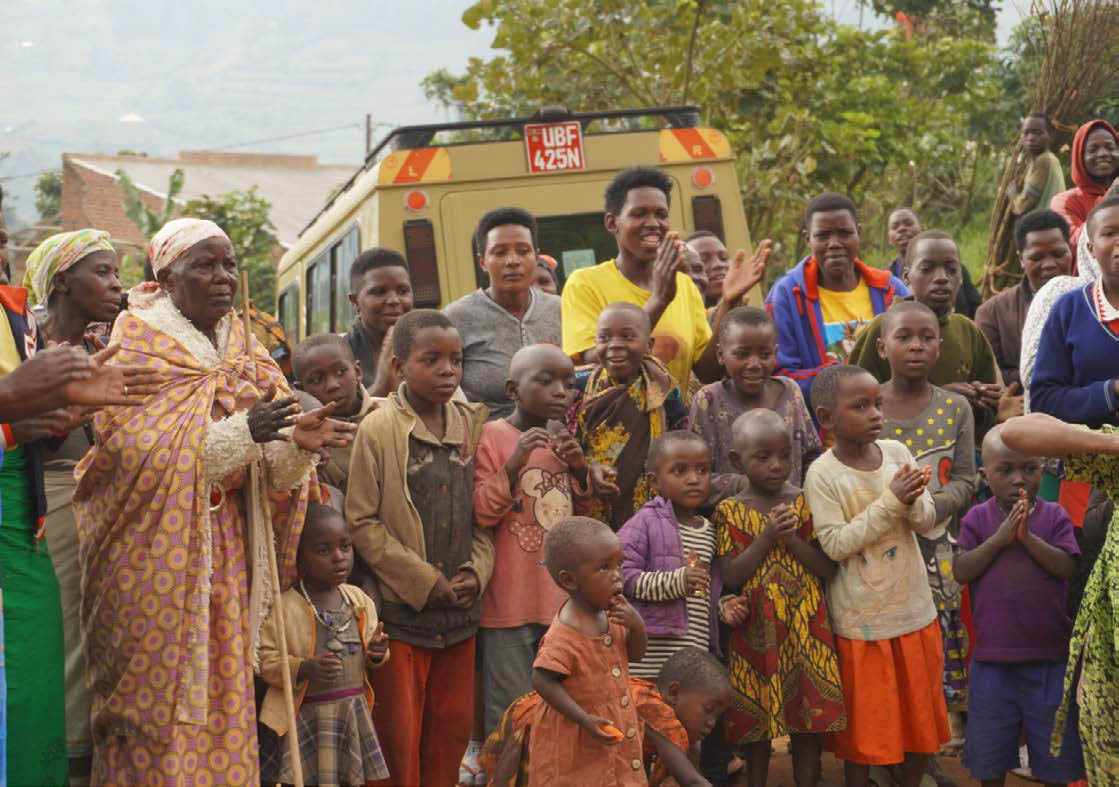
This story has been reprinted from Digit News Summer 2024. To download the full issue please click here.

Recently, a bizarre question took hold of social media: Could 100 men take on a gorilla in a fight? What…

On 27 April 2025, Sonam Modhwadia took on the legendary TCS London Marathon, running every mile with purpose, in support…
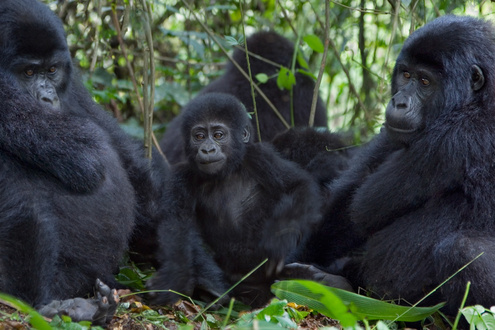
A surge in Mpox cases across the Democratic Republic of the Congo has triggered an urgent conservation response to protect…
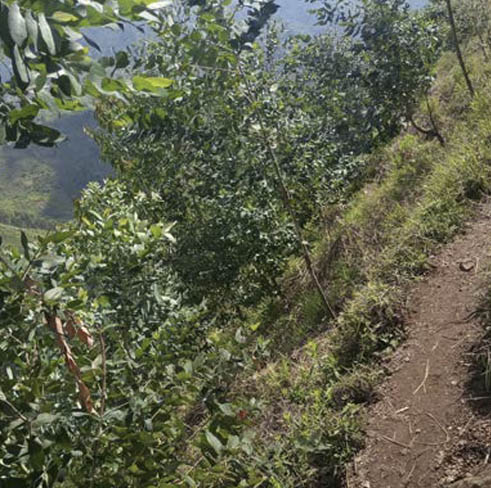
In May 2023, communities across the Kahele district were hit by huge floods and mudslides, triggered by days of torrential rain. The Gorilla Organization’s tree planting projects in Bushushu and Nyamukubi were literally washed away, with one worker losing his life in the tragedy.
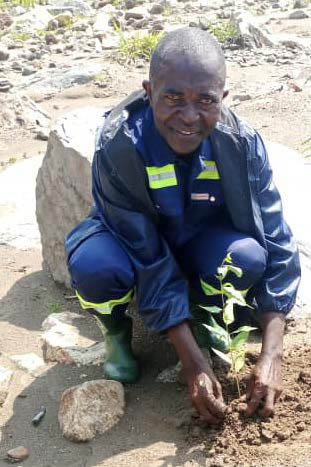
One year on, and it’s back to business. Reforestation activities on these two sites have resumed and the on-site nurseries have been rehabilitated.
In the nurseries impacted by the mudslides, as well as at 18 other sites nearby, Henry Cirhuza and his team have already celebrated two planting seasons, with 250,000 saplings put in the ground per season. And the determination to get back growing is infectious.
Interest in the tree-planting project keeps rising as local communities come for the sustainable firewood and construction materials, keeping the gorilla habitat intact one tree at a time.
This story has been reprinted from Digit News Summer 2024. To download the full issue please click here.

Recently, a bizarre question took hold of social media: Could 100 men take on a gorilla in a fight? What…

On 27 April 2025, Sonam Modhwadia took on the legendary TCS London Marathon, running every mile with purpose, in support…

A surge in Mpox cases across the Democratic Republic of the Congo has triggered an urgent conservation response to protect…
In honour of International Women’s Day, this year we are paying tribute to all the incredible women that are at the beating heart of everything we do.
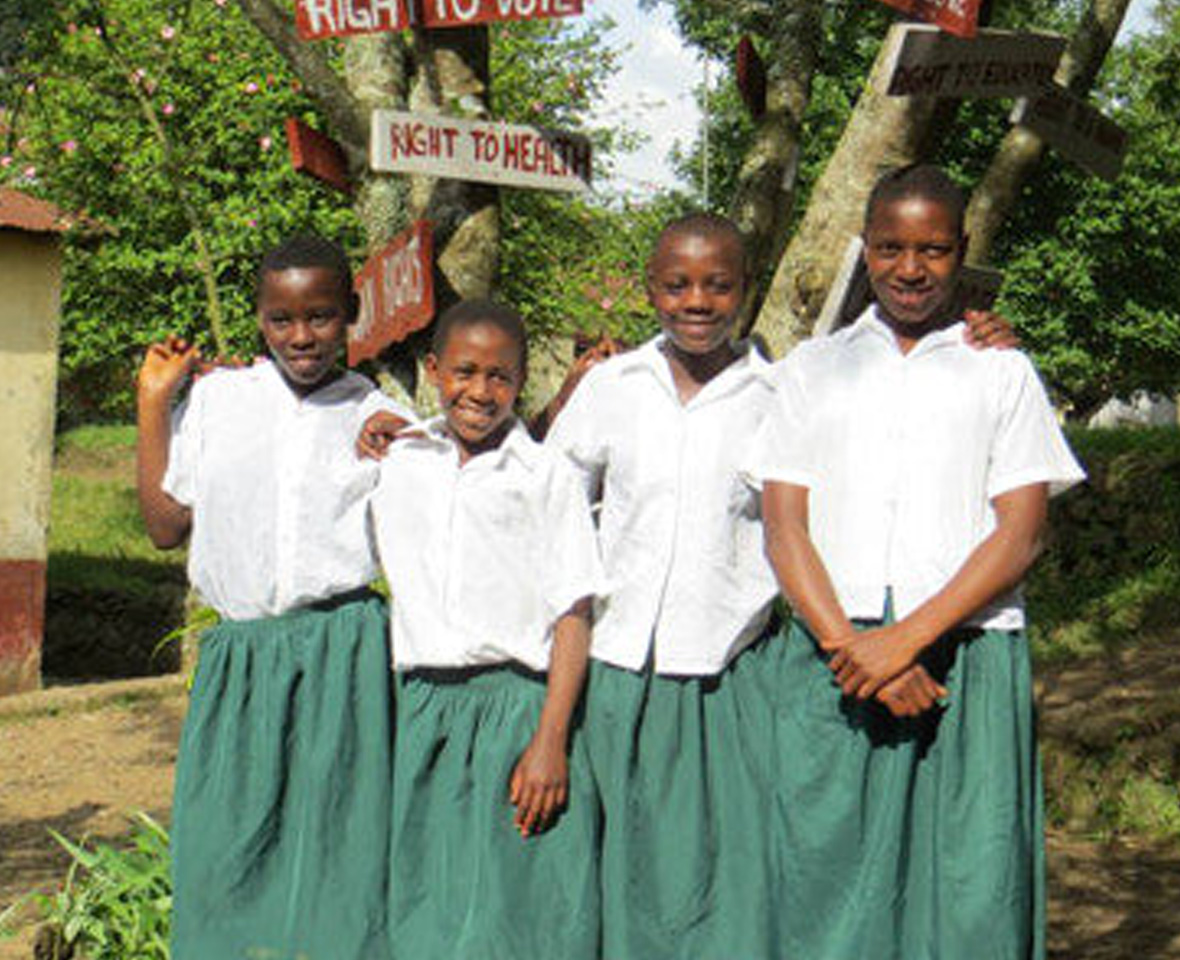
We recognize that women are at the centre of their communities, raising them up and sustaining them. However, in the villages that we work in Uganda, Rwanda and DR Congo, it’s the women who are usually in the most marginalised positions in society. Often without a formal education, and with domestic expectations based on traditional gender roles, too many women lack independence and opportunity. At The Gorilla Organization, we actively promote gender equality by empowering women and girls through our community-based initiatives. For example, we ensure that girls attend our educational programmes in schools, teaching them valuable conservation lessons. We also train and equip women in skills such as bee-keeping and agriculture, and provide them with the resources they need in order to become financially independent.
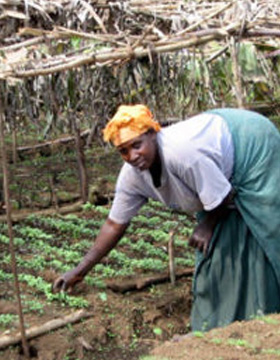
In our gorilla monitoring work, we are also seeing more and more female rangers getting involved in conservation and leading the conservationists of the future. In other areas too, we have many amazing women running the Gorilla Organization projects. Jovia Basenga coordinates the Beekeeping Project, training beekeepers living close to the gorilla habitat in Uganda. Thanks to her work, people are finding alternative livelihoods, living independent of the gorilla habitat. There’s Regina Sanyu, our very own Farmer Trainer. She works helping communities to be less reliant on the gorilla habitat and instead grow their own crops sustainably and in a who heads up our Batwa Project, working with and empowering marginalized indigenous communities, giving many of them the chance to earn a living and more fully integrate into society.
And of course, we can’t forget our inspiring Director, Jillian Miller. Jillian has led The Gorilla Organization for over 30 years and is the founder of its award-winning community-led conservation. Without all these incredible women, we would not be who and where we are today, leading the conservationists of the future. “It’s been my privilege and inspiration to work alongside these amazing women in my 30 years as director of the Gorilla Organization. I’m in awe of their astounding ‘Deeds Not Words’. Happy International Women’s Day!” – Jillian Miller, Director of the Gorilla Organization.

Recently, a bizarre question took hold of social media: Could 100 men take on a gorilla in a fight? What…

On 27 April 2025, Sonam Modhwadia took on the legendary TCS London Marathon, running every mile with purpose, in support…

A surge in Mpox cases across the Democratic Republic of the Congo has triggered an urgent conservation response to protect…
The Bikingi mountain gorilla group has welcomed its newest member – a new-born baby.
Rangers patrolling Bwindi Impenetrable Forest National Park first spotted the tiny infant clinging to mother Mucecuru on Sunday (4 February) though it’s believed that she had been born two days earlier.
While keeping their distance, rangers have managed to capture a single photo of mother and baby and confirm that both are doing well.
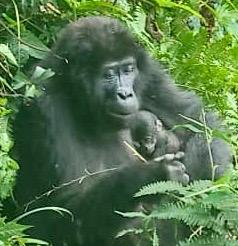
This new birth brings the total number of mountain gorillas in the Bikingi family to nine individuals. The baby’s father, silverback Kaharata, leads the thriving group, which is habituated to tourists and closely monitored by rangers and conservationists.
The news has been celebrated by the whole of the conservation community. With many of the people living alongside the Bwindi National Park also reliant on tourism for their livelihoods, the news also brings renewed hope for the year ahead.
Gorilla Organization Director Jillian Miller says: “We are so thrilled to see the mountain gorillas of Bwindi go from strength-to-strength. The birth of a new baby to the Bikingi group is cause for great celebration. But baby gorillas are incredibly delicate and now more than ever we need to support the rangers protecting them.”

Recently, a bizarre question took hold of social media: Could 100 men take on a gorilla in a fight? What…

On 27 April 2025, Sonam Modhwadia took on the legendary TCS London Marathon, running every mile with purpose, in support…

A surge in Mpox cases across the Democratic Republic of the Congo has triggered an urgent conservation response to protect…
The eastern lowland gorillas of the Kahuzi Biega National Park have been pushed to the very brink of extinction by war, habitat loss and poaching. Now, a BBC documentary “Silverback” has shone the spotlight on efforts to save them, one gorilla at a time, by opening up the possibility of bringing tourists to the trouble region.
The 90-minute long film “Silverback” produced by Off the Fence, follows award-winning wildlife cameraman Vianet Djenguet as he documents a gruelling but vital mission to ‘habituate’ the notoriously protective silverback Mpungwe in the Kahuzi Biega National Park in eastern DR Congo. Earning the 250kg gorilla’s trust was an essential step for getting his whole family used to the presence of humans, beginning with researchers and rangers. Both Djenguet and Mpungwe know what is at stake. A native of the region, the cameraman has seen first-hand the misery caused by continuous wars between 1996 and 2003. The silverback, meanwhile, was orphaned in 1996, as militia killed gorillas for bushmeat. The numbers of eastern lowland gorillas living in the National Park plummeted from around 630 to just 170 today.
Gorilla Organization Director Jillian Miller says: “Kahuzi-Biega is a magical place and the gorillas living there are truly charismatic, with their characteristically thoughtful expressions and strong family ties. The Silverback documentary is a stunning homage to the region and a powerful testimony to the rangers and conservationists fighting against the odds to keep gorillas safe.”
Habituation, or getting gorillas used to humans, is the first step towards introducing them to tourists. John Kahekwe, a long time friend and collaborator of the Gorilla Organization and contributor to the “Silverback” documentary, believes tourism has the potential to transform the lives of the communities living around Kahuzi-Biega while also providing a brighter future for the gorillas themselves.
However, for now, a thriving eco-tourism industry in Kahuzi-Biega remains a long way off as the region remains unstable. This makes the work of the Gorilla Organization as well as Kahekwe’s own Pole Pole Foundation, as vital as ever. As the documentary shows, poaching continues to be a major problem in the park, with snares left on the forest floor putting gorillas’ lives at risk. Community conservation projects, which tackled the root causes of poaching and habitat destruction, are the most effective way of keeping gorillas safe.
The film won the prestigious Jackson Wild Film Festival, the leading accolade for wildlife documentaries. “Silverback” is available to view on the BBC iPlayer

Recently, a bizarre question took hold of social media: Could 100 men take on a gorilla in a fight? What…

On 27 April 2025, Sonam Modhwadia took on the legendary TCS London Marathon, running every mile with purpose, in support…

A surge in Mpox cases across the Democratic Republic of the Congo has triggered an urgent conservation response to protect…
The Gorilla Organization joins the whole of the conservation community in mourning the loss of Dr Mike Cranfield, the visionary founder of Gorilla Doctors.
For more than 20 years, Dr Cranfield transformed the conservation landscape. As Director of the Gorilla Doctors, he brought veterinary care to gorillas in the wild in Rwanda, Uganda and DR Congo. His pioneering approach to treating gorillas in their natural habitat is credited with helping bring mountain gorillas back from the brink of extinction. Most recently, he ensured gorillas stayed safe from harm during the COVID-19 pandemic.
For Gorilla Organization Director Jillian Miller, Dr Cranfield was a friend as well as a colleague. “We started out together in our conservation careers, and I was immensely proud to see the vital, groundbreaking work he was doing on the ground in Africa, first with Mountain Gorilla Veterinary Project and then with Gorilla Doctors. Mike will be missed terribly.”
The Mountain Gorilla Veterinary Project was born out of the same legacy as the Gorilla Organization, both at the specific request of Dian Fossey. Dr Cranfield’s legacy lives on not only in the survival of gorilla in the wild but through the many vets, students and conservationists he trained and supported over the years. Among them is Dr Gladys Kalema-Zikusoka, Gorilla Organization Trustee, and award-winning wildlife vet, for whom Mike was an inspiration as well as a mentor. The Gorilla Organization continues to partner with Gorilla Doctors to fund life-saving patrols in Africa.
Article Image (c) Gorilla Doctors

Recently, a bizarre question took hold of social media: Could 100 men take on a gorilla in a fight? What…

On 27 April 2025, Sonam Modhwadia took on the legendary TCS London Marathon, running every mile with purpose, in support…

A surge in Mpox cases across the Democratic Republic of the Congo has triggered an urgent conservation response to protect…